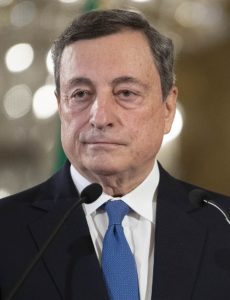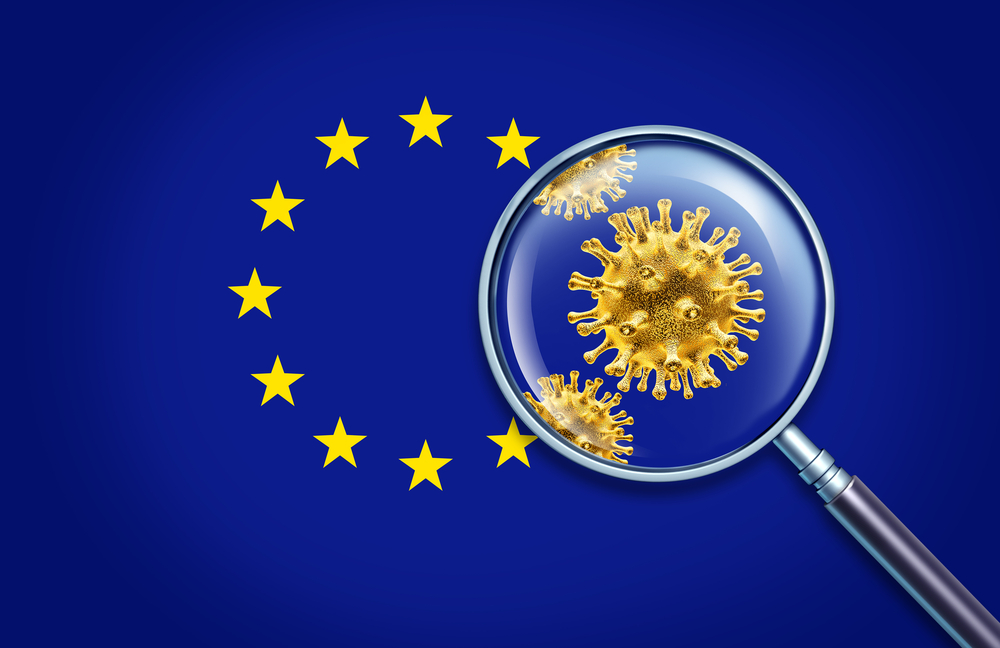My friend Daniel Johnson has an article on the European project at our sister site, Law and Liberty. Johnson seems convinced that the pandemic has endangered the European project and, indirectly, proved the feasibility of Brexit. There is much I agree with in Daniel’s article; here I will concentrate on what I don’t agree with. It is a very English article, so to say. I think he could be right, but for the wrong reasons. Johnson writes:
The European Commission, having elbowed aside national governments, was culpably slow to provide adequate supplies of vaccines for its peoples. The vaccination rollout began later, has taken longer, and has resulted in lower rates of inoculation than in either North America or the UK. At the time of writing, more than 740,000 EU citizens have died of Covid: slightly fewer than the United States in proportion to population, but still a shocking total. This display of bureaucratic incompetence over a matter of life and death has been the greatest single failure in the history of the European Union. The worst of it is that those responsible are unelected. Donald Trump paid a price at the ballot box for his handling of the pandemic. Leaders of European nation-states may do the same. But the President of the European Commission, Ursula von der Leyen, and her fellow Commissioners will remain in office for the foreseeable future. They cannot be held to account.
This is true, but it is quite bizarre to note it the very day when the EU vaccination rate caught up with America’s one. Also, if the EU didn’t perform very well in its centralized bid for vaccines (mostly because of its procurement procedures, see this), it is also true that health care is something each European state supplies in its own way. Dramatically different health care results were a national matter, due to the severity of outbreaks and the difference in the organization of national health services. The English “Brexited” national health care service didn’t work much better, though England was more rapid and efficient n the vaccine rollout.
Did “the pandemic and its mishandling by the EU have exacerbated conflicts”? I find it hard to believe. If you are searching for those who mishandled the pandemic, you will find them in national capitals, whatever your preferences. If you think lockdowns were disproportionate measures, it was national politicians who mandated them. If you think the healthcare systems worked badly, they are of national design. If you think test and tracing systems should have been better organized, again it is national authorities who were unable to work them out. It would be difficult for national governments to shift the blame to Brussels. Particularly because, in a move that surprised most, “European solidarity” was agreed in the form of a “Next Generation EU” package that is the closest thing to a transfer union the EU has seen so far. I am personally skeptical of this move, but it certainly made the EU more popular than it used to be in the South. It eased conflicts – at least so far.
On the Italian government, Daniel writes:
Last February, Italy repeated its experiment of appointing a technocrat as Prime Minister, in this case the former head of the European Central Bank, Mario Draghi. So far, his “government of national unity” has held together, but this unelected EU bureaucrat has no party and no popular constituency. As the immediate crisis recedes, Draghi will find it hard to hold together his ragtag coalition of socialists, populists, and nationalists—especially if a threatened new wave of migrants arrives from North Africa.
The prime minister before Draghi was an unelected university professor, Mr Conte, who succeeded in presiding over two governments, both of them supported by the populist (and ultra-democratic, in the sense that it advocates direct democracy) Five Stars Movement, one together with the Northern League, one together with the Democrats of the Left. So, what we had before Draghi was not really more “democratic” – nor more accountable. In our parliamentary democracy, governments are made in the Parliament and ought to have the support of parliamentary forces. This we had before, and this we have now. The anomaly of Draghi is that a lifelong civil servant is called to manage, not a time of austerity or fiscal prudence, but a big public spending programme. This is what brought so many different parties together: if you want to be cynical, it shows the need to make sure they get a bite of the cake. If you want to be romantic about democracy, you could see it as the willingness to engage together with the other political parties in virtuous spending, for the good of the country. Draghi is not an “unelected EU bureaucrat”: he has been director general of the Italian Treasury Minister and governor of Italy’s central bank.. You may like his policies or not, but he enjoys unprecedented international prestige. That strengthens the national interest, if you care about such things. On top of that, his caretaker government is appointed basically for one year, because next year the mandate of the current President of the Republic will end and hence a new PM might be appointed under the patronage of a different political constellation, the same which must agree on the selection of the new President. I will be happy to bet a dinner in a good restaurant, either in London or in Milan, with Daniel that the Draghi majority will hold fine until the election of the new President of the Republic.

I said before that Daniel may be right but for the wrong reason. I think there is one set of policies in which the EU is bound to exacerbate conflict: the “green new deal”, supposed to reduce net greenhouse gas emissions by at least 55% by 2030, compared to 1990 levels. The Commission’s agenda (see here) is very ambitious and if confirmed in its guidelines may elicit conflicts both among and within member countries.
A last point. In his article, Daniel writes: “Globally, the nation-state has made a comeback, courtesy of the pandemic; supranational organisations, not so much.” Well, that is true: interventionism rose in the pandemic, and interventionism in our world is always nation-state interventionism. But I don’t think the nation-state performed particularly well, and I think with the passing of time that will be ever more apparent. On the one hand, the only “solution” to the pandemic, if we may use this world, is genuinely global: vaccines developed by for profit international corporations. On the other hand, national solutions to outbreaks and rise in contagions looked as awkward and sometimes overshooting “one sizes fits all measures;” outbreaks demanded more local solutions, tailored to the needs and problems of each territory. The nation-state was too big to be surgical in its interventions and that had a cost. It was also no good substitute for international capitalism and genuine international cooperation among scientists. Vaccine nationalism, when practiced (including by the EU in its procurement decisions), didn’t work well.


READER COMMENTS
Thomas Lee Hutcheson
Jul 22 2021 at 6:48am
To the extent that the pandemic shifted power to the nation state away from supranational organizations is probably because the scope of the externalities were “nation state size.” The harm to others of one more Italian becoming infected was mainly felt by other Italians, not Germans or Swedes and vice versa. In the US the shift was modestly toward States and away from the Federal Government.
Comments are closed.